Natural and productive capital
Natural capital of Grupa LOTOS
- Energy sources: crude oil (fuel gas and fuel oil from its processing), natural gas, electricity generated and bought from third parties;
- Feedstock: crude oil, natural gas;
- Components of the environment/media with process applications: water (steam production and cooling), air (as a control medium);
- Components of the environment under direct and indirect impact from the LOTOS Group’s operations:
- air;
- water;
- soil;
- ecosystems and biodiversity;
- local communities and employees;
- landscape.
Our objectives in natural capital management:
- Ensuring compliance with environmental law;
- Ensuring that the organization is perceived as being aware of local and global benefits of responsible use of natural resources and environmental protection;
- Striving to operate in conformity with best environmental practices, while ensuring responsible use of natural resources.
Key activities:
- Monitoring the state of the natural environment and how it is affected, beyond the scope required by legal regulations;
- Consistently reducing the negative impact on the natural environment;
- Incorporating and implementing the best available techniques and best environmental practice for designing new process units, as well as operating and upgrading the existing ones;
- Mitigating the risk of sudden environmental contamination (preventing industrial failures);
- Supporting pro-environmental efforts of third-party institutions – environmental protection beyond the organization’s direct sphere of influence;
- Pro-environmental education – raising the awareness of best environmental practices and responsible use of natural resources among employees and local communities.
Results:
Increased share of natural gas in the organization’s energy mix
Less fugitive emissions to the atmosphere
Gradual modernisation of service station facilities
Reduced water consumption – using closed-cycle systems and maintaining highest possible recirculation levels
Significant reduction of atmospheric emissions from the refinery in Gdańsk: SO2, NOx and dust emissions have been reduced ten, two and nearly four times, respectively, in comparison with 2011
Average annual wastewater emissions below 50% of admissible levels
Monitoring of bottom sediment and sea water quality within oil and gas production areas
Placing more emphasis on biodiversity in environmental impact assessment
End of preparations to a large-area inventory of elements comprising the environment within and surrounding our refinery in Gdańsk
Consistent reduction of gas flared at production sites
Achieving carbon intensity levels on a par with the leading European refineries
Construction and launch of a flare gas recovery unit – a 6,000 Mg reduction in CO2 emissions and additional gas in the energy system
Running an educational campaign on waste segregation within the LOTOS Group
Productive capital of Grupa LOTOS
- Exploration: licence areas, exploration infrastructure (drilling rigs);
- Production: production infrastructure (production platforms, transmission lines);
- Downstream: downstream infrastructure (refinery, production plants, port-refinery oil pipelines, gas pipelines, CHP plants);
- Primary logistics: product depots, road and rail loading stations, rail infrastructure, geographical location;
- Secondary sales and distribution: distribution networks, road infrastructure, rail infrastructure, geographical location, service station chain.
Our objective in productive capital management:
- Achieving production and technology standards on a par with global petrochemical trends, while ensuring compliance with environmental regulations.
Key activities:
- Increasing our own resource base based on fields in low- or medium-risk areas;
- Expanding operations on the Baltic Sea, the Norwegian Continental Shelf and onshore areas in Poland and Lithuania, in particular by:
- Poland: increasing production from the existing fields, fully appraising the hydrocarbon potential of the Baltic Sea, developing operations on onshore licence areas;
- Norway: exploring, developing and producing from the existing offshore licence areas, acquiring producing fields;
- Lithuania: fully developing the existing onshore licence areas.
- Modernisation of exploration and production infrastructure;
- Optimum use of assets held and acquired as part of the growth strategy:
- Further increasing the conversion ratio and intensifying feedstock processing;
- Expanding the refinery’s process lines (coking unit);
- Efficient use of the refinery’s processing capacities expanded through the 10+ Programme;
- Maintaining high reliability of refinery installations – ensuring safe and stable operation of production and ancillary facilities, with a target of 98% minimum annual availability;
- Expanding the fuel, oil and bitumen sales networks.
Results:
Higher crude oil production
Technical availability of the refinery’s installations of 99.7% achieved - the highest in the refinery’s history, which is also one of the best results in the world
New licences
Increased share in the retail market
Higher processing volumes and efficiency
The total level of capital expenditure allocated to exploration and production in 2011–2015 is PLN 3.9bn, which represents almost 70% of the LOTOS Group’s total CAPEX budget for the period.



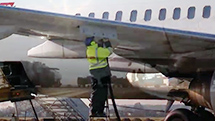
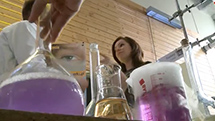
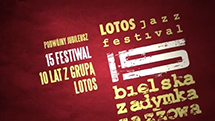
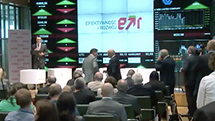




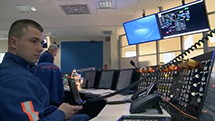

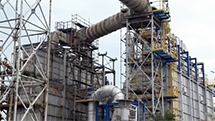
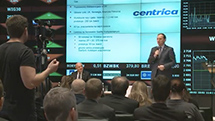
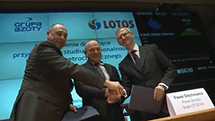
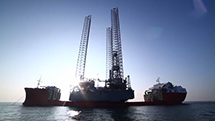
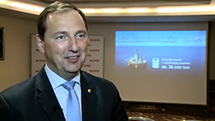
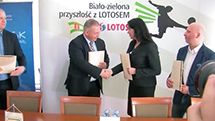
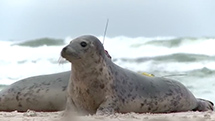
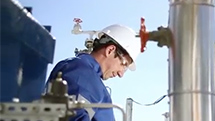

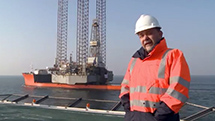
 E-mail
E-mail Facebook
Facebook Google+
Google+ Twitter
Twitter